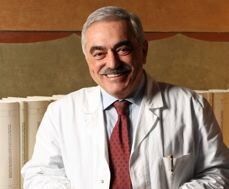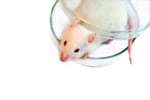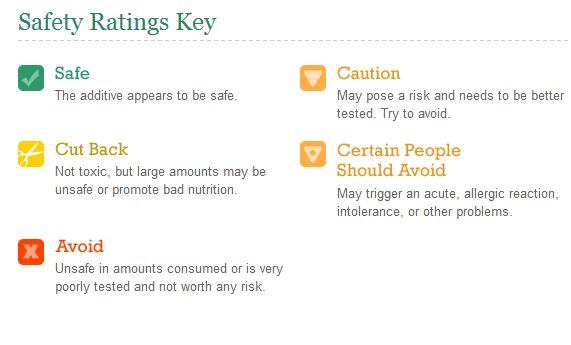In a press release issued yesterday, the CSPI said the sweetener will remain in the ‘caution’ category of its Chemical Cuisine food additives guide pending a “review of an unpublished study by an independent Italian laboratory that found that the sweetener caused leukemia in mice [that were exposed from before birth]”.
Substances in the 'caution' category "may pose a risk and need to be better tested", says the CSPI. "Try to avoid."
It also gave a ‘caution’ rating to mogrosides (the sweet components in monk fruit), and the high potency sweetener monatin “on the basis of inadequate testing”.
CSPI executive director Michael F. Jacobson added: “Sucralose may prove to be safer than saccharin, aspartame, and acesulfame potassium, but the forthcoming Italian study warrants careful scrutiny before we can be confident that the sweetener is safe for use in food.”
CSPI: Ramazzini study warrants careful scrutiny before we can be confident that sucralose is safe
The study in question was conducted by Dr Morando Soffritti, director of the Ramazzini Institute in Bologna, Italy, who was blasted by industry executives as “irresponsible” after he told delegates at the Childhood Cancer 2012 conference in London that sucralose “induces a dose-related incidence of leukaemia in male mice”.
He added that “action must be taken to review the present regulation governing the use of both aspartame and sucralose”.
In an accompanying press release Dr Soffritti advised children and pregnant women "to avoid, wherever possible, consuming artificial sweeteners until adequate research shows rodents are no longer at risk of developing cancer, and there is therefore not a cancer risk to humans.”
Tate & Lyle: Dr Soffritti’s aspartame studies have been dismissed by regulatory agencies in the US and Europe

But Tate & Lyle told FoodNavigator-USA it was “very disappointed” that the CSPI had not waited until the controversial research was peer-reviewed and published in a reputable scientific journal given that Dr Soffritti’s rat studies linking aspartame and cancer had been “dismissed by regulatory agencies in the US and Europe” and did “not follow internationally agreed scientific procedures”.
Speaking to our sister site FoodNavigator.com after the conference in London, the International Sweeteners Association said Dr Soffritti had “caused alarm by discussing the results of his discredited research at a conference that is focused on helping the parents and families of vulnerable and sick children”.
In a 2011 review, the European Food Safety Authority (EFSA) drew attention to a series of flaws in Dr Soffritti’s work on aspartame and concluded it did not justify a change to the sweetener’s regulatory status.
The FDA, meanwhile, identified “significant shortcomings in the design, conduct, reporting, and interpretation” of his work.
CSPI: ‘It would be more irresponsible to withhold information with the potential to affect people's health’
The CSPI said it did not know when or whether Dr Soffritti’s sucralose research would be published, but insisted that it was not irresponsible to refer to it just because the industry did not like the conclusions he had drawn.
CSPI senior scientist Lisa Y. Lefferts, MSPH, told FoodNavigator-USA that it would be more “irresponsible to withhold information with the potential to affect people's health, from a source that objective analyses show is professional and produces credible results”.

Asked why the CSPI had only now removed sucralose from its ‘safe’ list given that Dr Soffritti had presented his research more than a year ago, she said: “What is new is our analysis of the [US government-backed] National Toxicology Program/Environmental Protection Agency-sponsored [Nov 2011] review of Ramazzini data, as well as other information, that bears on whether his laboratory is a credible, professional organization or not.
The review of the Ramazinni laboratory practices and pathology evaluations - which you can read here - “found it to be a well-organized, clean facility that applied meticulous detail to the necropsy and to the recording, collecting, and archiving of materials and tissues and in general found everything there to be in good order”, she claimed.
“The one issue that came up was the numerical magnitude of one particular type of cancer in rats. Other cancers are not at issue. Sucralose caused leukemia in mice, not rats, and there are no issues raised with that.
“Other reviews comparing the results coming out of Ramazzini and those coming out of the National Toxicology Program found remarkable consistent results. In fact, since animals tested by Ramazzini live a full life, rather than being sacrificed at about the equivalent to retirement age, they have a longer time to develop tumors, and so are more sensitive at detecting cancer; that is a better way of assessing risk to consumers.
“The studies that sacrifice animals at about the equivalent of retirement age were initially developed to study occupational exposures.”
What is sucralose?

Approved in the US in the late 1990s, zero-calorie sweetener sucralose is around 600 times sweeter than sugar and is used in soft drinks, baked goods, ice cream, tabletop sweeteners, and other products. Unlike aspartame, it does not break down at high temperatures and can be used in baked goods.
While it is made from sugar, the sugar molecule is chemically modified via a multi-step process that selectively replaces three hydrogen-oxygen groups on the sugar molecule with three chlorine atoms to make sucralose, which is classed as an artificial sweetener.
According to market leader Tate & Lyle, sucralose is a "safe and remarkably inert ingredient”.
It adds: “According to the FDA… data was studied from more than 110 studies in humans and animals. Many of the studies were designed to identify possible toxic effects including carcinogenic, reproductive and neurological effects. No such effects were found."

Other bodies that have confirmed its safety include the European Union Scientific Committee on Food (SCF), the Food Standards Australia/New Zealand (FSANZ), the Health Protection Branch of Health and Welfare Canada, the Food and Agriculture Organization/World Health Organization Joint Expert Committee on Food Additives (JECFA), and Japan’s Ministry of Health and Welfare, said the company.
